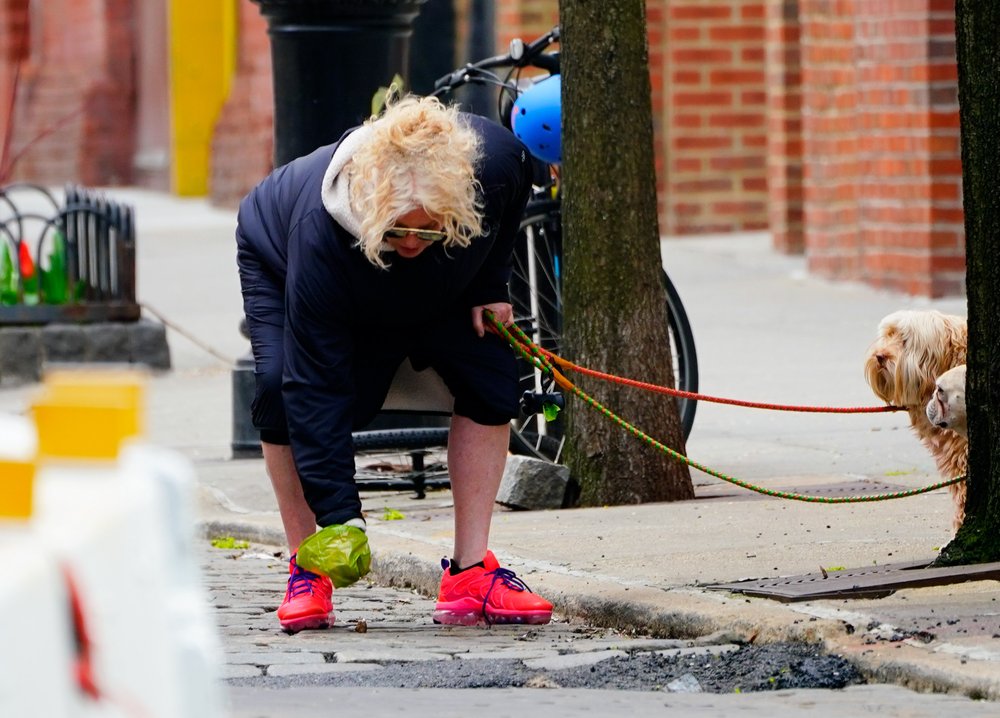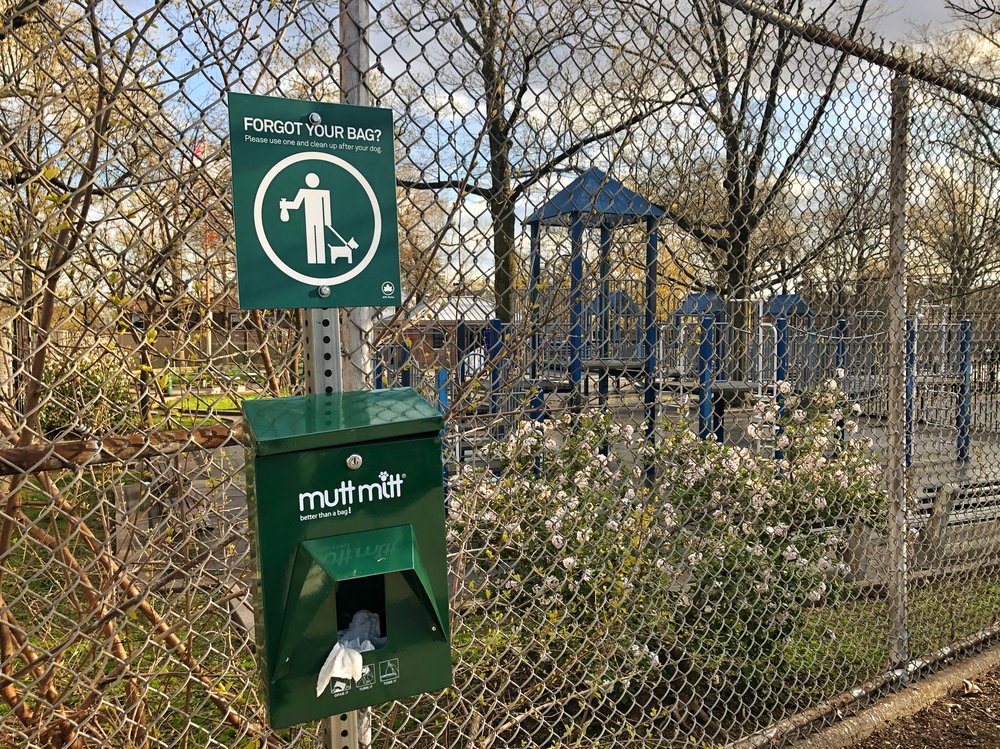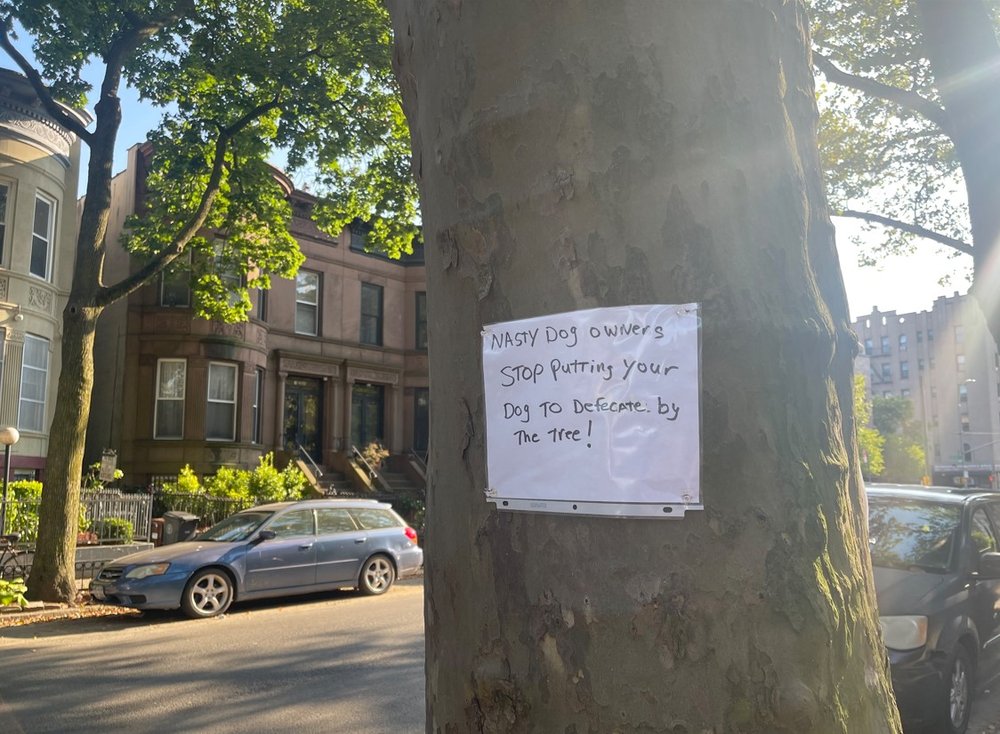Dog poop complaints are up in NYC, especially in areas without public baggie dispensers
July 28, 2025, 6:01 a.m.
The number of complaints about dog waste on sidewalks is up by 14% this year so far, 311 data shows.

New York City’s dogs, by some estimates, produce about 27,000 tons of poop every year. Most of it ends up in landfills. But to everyday New Yorkers, it may seem like more and more dog poop is staying on the city’s sidewalks each day.
According to 311 complaint data, the number of dog waste-related calls has steadily risen each year since the pandemic. There were 1,622 complaints in the first half of this year, compared with 1,426 and 1,392 complaints during the first halves of 2024 and 2023. And that comes despite what's known as the pooper-scooper law, which has legally required the city's dog owners to pick up their dogs' waste for half a century.
But the data also points to a solution. Since 2017, the city's parks department has installed about 1,100 waste-bag dispensers across the five boroughs. A Gothamist analysis found ZIP codes with more dispensers tended to have fewer complaints. Some ZIP codes have no dispensers, while others — mostly those containing large parks — have up to 34.
Among the city’s 145 ZIP codes, 51 don’t have any dispensers. Some of the ZIP codes with the highest number of complaints have the least access to the free bags.
“It’s so much, and sometimes it gets smeared,” said lifelong Washington Heights resident Jacqueline Zelaya. “And it’s gotten a lot worse in the past couple of years.”
Zelaya’s ZIP code, 10032, had the highest number of dog-waste-related 311 complaints this year so far. Out of 160 complaints there, 131 came from just two blocks on Riverside Drive between 161st and 158th streets. That’s up from 19 in the first half of 2024, representing a more than 740% increase.
”Sometimes you see that somebody’s dog has a really big accident,” Zelaya said. “I joke with my kids and call it elephant poop.”
The 11226 ZIP code in Flatbush had the second-highest number of complaints, at 51. The ZIP code has only two dog-waste-bag dispensers.
In third place was 11691 in Far Rockaway, at 37 complaints. The neighborhood has 12 dispensers.
Zelaya and her neighbor Jose Gomez said they'd like the city to install more trash cans on their blocks. They added that scaffolding in their neighborhood gives negligent dog owners cover to leave poop behind, so both residents hang plastic shopping bags on the scaffolding for owners to use.
Access to free dog-poop bags would give people “no excuse” to leave the waste on the ground, Gomez said. There isn’t a single public waste-bag dispenser in Washington Heights' 10032 ZIP code.
The parks department declined an interview request about the lack of dispensers in certain neighborhoods. A spokesperson for the agency said new dispensers have been installed in recent years when residents or elected officials spoke up about the issue.

City Councilmember Julie Menin, who represents the Upper East Side, last year introduced a bill that would require the city to install waste-bag dispensers on all public trash cans. She told Gothamist she authored the legislation after her constituents complained about children stepping on dog waste.
“When pedestrians see a dog owner not pick up after the dog, I think there’s going to be a shaming factor,” Menin said. “They’ll say, 'Wait a minute, just down the block there's a bag and a container for you to throw it out.'”
She said the effort has been stalled by a disagreement with the city sanitation department over whether the dispensers should be installed on trash cans or public benches at bus stops, which are owned by the city transportation department.
Menin said it’s the city’s responsibility to install dispensers, especially in the communities that need them most.
“It’s sort of the bare minimum expectation,” she said. “It is not too much to ask that the city government be addressing these issues.”

Caroline Scruggs, a professor of community and regional planning at the University of New Mexico, has studied how to encourage people to pick up after their dogs. She and her colleagues found that social pressure from other dog owners and the desire to “not be that person” who doesn’t clean up their pooch’s poop was the most effective way to get people to comply.
“Dog owners can be seen as this informal network, and informal networks kind of have a way of policing themselves,” Scruggs said. “You pick up your dog’s waste, and I'm gonna pick up mine."
While New Yorkers who don’t pick up their dogs’ waste can be fined up to $250, the rule is rarely enforced. Only eight people have been ticketed in the past two years, city data shows.
NYC's sidewalks covered in dog poop, rule for pickup hardly enforced NYC lawmakers look to help pet owners doo the right thing with poop bag bill Should NYC compost its tons of dog poop? One neighborhood is trying it.